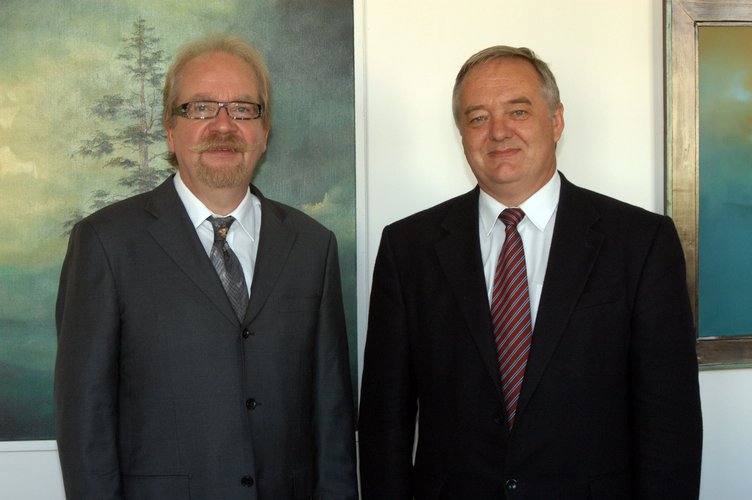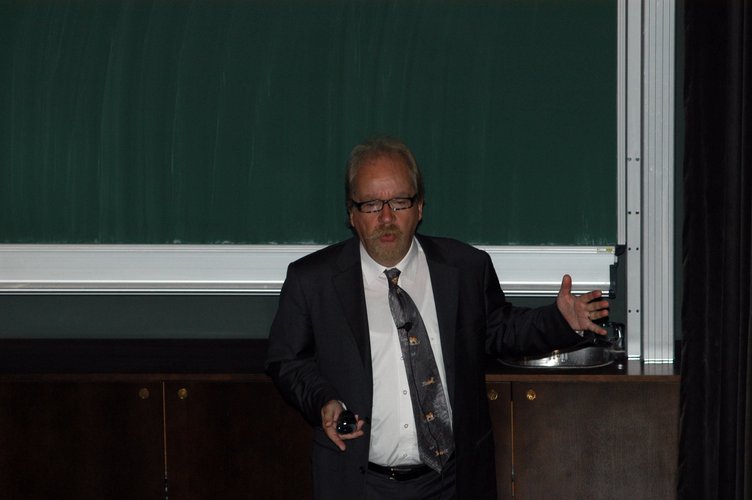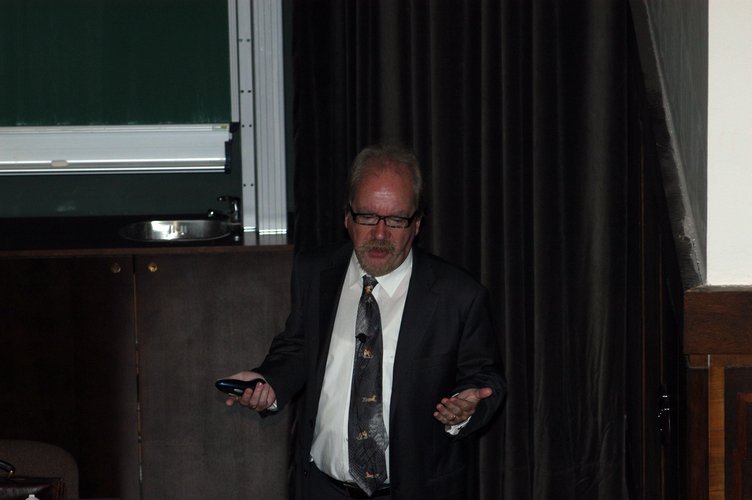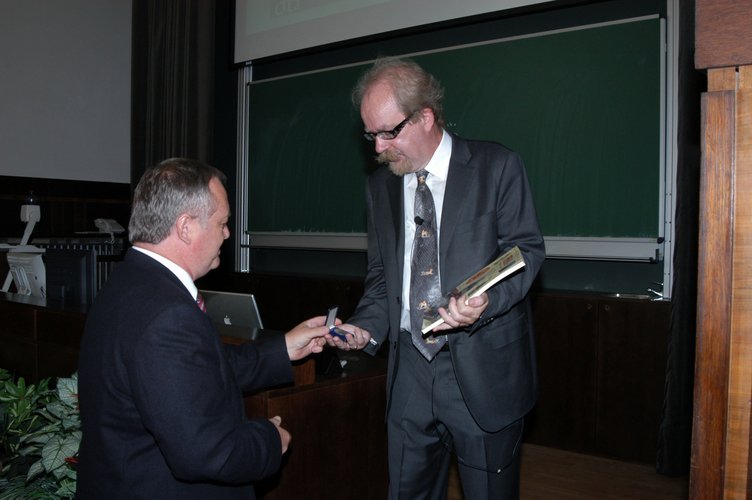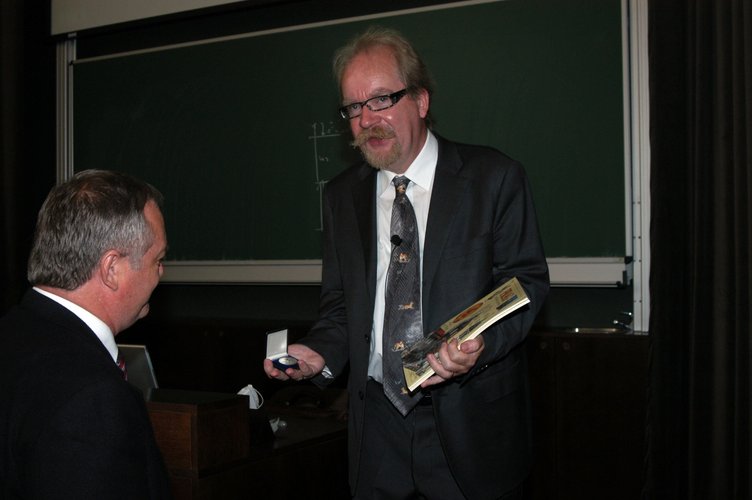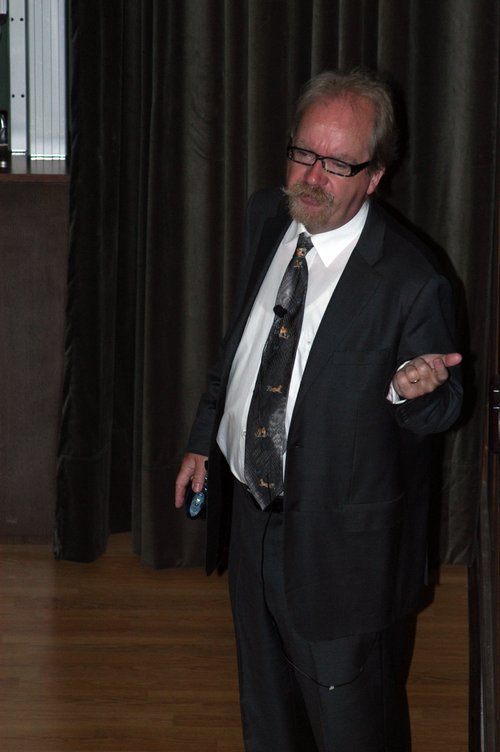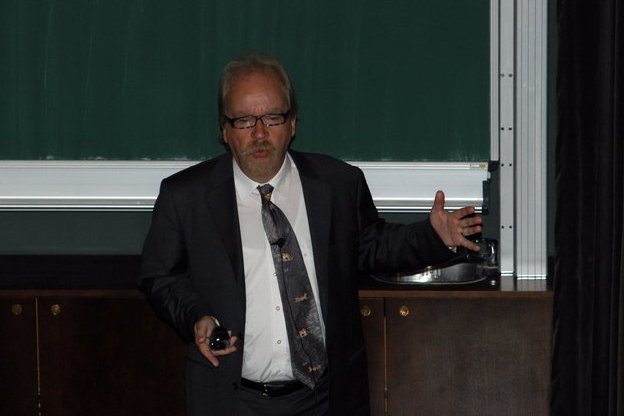
Prof. Klaus Müller-Dethlefs (University of Manchester, Spojené království)
Non-Covalent Interactions in Molecular Clusters: How Do We Compare Experiment and Theory?
Abstrakt
Molecular clusters, produced in supersonic jets, are ideal model systems for the investigation of non-covalent interactions, which are most significant for the structure and dynamics of complex systems such as liquids and biomolecules. The inter–molecular Van der Waals and hydrogen bonds of molecular clusters and their intermolecular vibrations can be studied very precisely by modern methods of laser spectroscopy. In the last two decades, substantial progress has come from resonant multiphoton ionisation (REMPI), Zero Electron Kinetic Energy (ZEKE) photoelectron, UV or IR hole burning and, next to microwave, from Terahertz and IR spectroscopy. These experimental advances have been accompanied by immense progress from ab initio quantum chemistry methods for the computation of potential surfaces, applicable today also for larger systems, and from molecular modelling.
The lecture exemplifies how the hand-in-hand development of experimental and theoretical methods has substantially improved our understanding of non-covalent interactions and how this knowledge can be used to understand more complex systems. As an example for the competition between hydrogen and Van der Waals bonding we have observed, in the phenol....Ar2 complex, the very surprising switching of an argon atom from the π-binding aromatic ring site to the hydrogen bonding site. We also have used MATI spectroscopy to measure the dissociation energy of this complex directly.
The understanding of the stabilization of such simple molecular clusters in terms of different moieties such as –OH groups and aromatic rings is most important as benchmarks for the elucidation of the competition between hydrogen bonding and stacking interactions in larger biomolecular systems. New reagents and catalysts have unlimited potential for the future of organic synthesis. We have been interested in Lewis and Brønsted acid catalysis for a number of years. In this lecture, I am going to focus on several of these acid and related catalysts from the molecular design and engineering.
